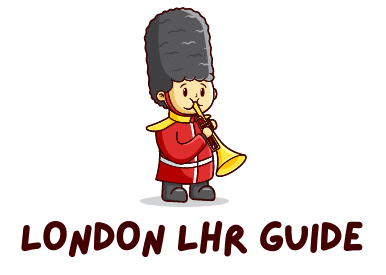Bus drivers are the backbone of London’s public transportation system, ensuring the safe and efficient movement of millions of passengers each day.
A common inquiry among aspiring drivers and curious individuals revolves around the earnings of bus drivers in the bustling city.
In this comprehensive article, we will explore the factors that influence bus driver salaries, including the requirements to enter the profession, the necessary licenses and certifications, the role of education and training, and how experience impacts earning potential.
Contents
Requirements To Become A Bus Driver
To become a bus driver in London, there are specific requirements set by Transport for London (TfL) and individual transport companies.
Here are the common prerequisites for becoming a bus driver in London:
- Age:
The minimum age requirement to hold a PCV (Passenger Carrying Vehicle) license and work as a bus driver in London is usually 18 years old. However, some companies may have higher age requirements.
- Driver’s License:
Candidates must possess a full, clean driving license, typically held for a minimum of two years, which allows them to drive legally in the United Kingdom. A Category D entitlement on the driving license is required for operating buses.
- Medical Fitness:
As part of the application process, candidates must undergo a comprehensive medical examination to ensure they are physically fit to drive professionally. This examination includes vision and hearing tests, as well as an assessment of overall health.
- Right to Work:
Candidates must have the legal right to work in the United Kingdom. This may involve providing appropriate work visas or proof of citizenship or residency.
- Criminal Record Check:
Prospective bus drivers in London are required to undergo a Disclosure and Barring Service (DBS) check, previously known as a Criminal Records Bureau (CRB) check. This is to ensure the safety and security of passengers.
- English Language Proficiency:
Strong English language skills are essential for effective communication with passengers and colleagues. Fluency in English is typically required to understand and respond to passenger inquiries and safety announcements.
- Knowledge of London:
Having a good understanding of London’s geography, major routes, and landmarks is advantageous. Some transport companies may require candidates to pass a test demonstrating their knowledge of London’s road network.
- CPC Qualification:
Bus drivers in London must hold a Driver Certificate of Professional Competence (CPC) qualification. This certificate demonstrates their understanding of road safety regulations, passenger care, and other essential aspects of their role.
Licenses And Certifications
Obtaining the appropriate licenses and certifications is a vital step in the path to becoming a bus driver in London.
The primary licenses and certifications required include:
- PCV License:
To operate a bus or coach in London, a PCV license is mandatory. This license is obtained by successfully completing a series of theory and practical tests, including a hazard perception test and a driving test specifically designed for buses.
- Driver Certificate of Professional Competence (CPC):
Bus drivers are also required to hold a CPC qualification. This certificate demonstrates their knowledge of road safety regulations, passenger care, and other essential aspects of their role.
Education and Training
While formal education beyond a certain level is not mandatory, bus drivers can benefit from various training programs and courses to enhance their skills and knowledge.

Some transport companies in London provide comprehensive training to ensure drivers are well-prepared for their responsibilities.
Key areas covered in these programs include:
- Passenger Safety:
Training programs focus on ensuring drivers have a thorough understanding of safety protocols and procedures to protect passengers during their journeys.
- Customer Service:
Bus drivers are often the face of the transportation system, so customer service skills are essential. Training programs emphasize the importance of providing a positive and helpful experience to passengers.

- Route Knowledge:
Drivers are required to have a good understanding of the various bus routes and stops in their assigned areas. Training programs provide detailed information about routes, landmarks, and navigation techniques.
- Vehicle Maintenance:
Basic knowledge of vehicle maintenance is crucial for bus drivers. Training programs cover routine checks, troubleshooting common issues, and reporting any defects or malfunctions promptly.
Experience and Salary Range
Experience and salary range for bus drivers in London can vary based on factors such as the transport company, the type of bus being driven, and the driver’s level of expertise.
Here is an overview of the experience requirements and salary range for bus drivers in London:
Experience:
- Entry-Level:
As a newly qualified bus driver, you can expect to start at an entry-level position. Many transport companies in London offer training programs for new drivers to gain the necessary experience and become familiar with routes and procedures.
Typically, no prior professional driving experience is required for entry-level positions.
- Intermediate-Level:
With a few years of experience under your belt, you can progress to intermediate-level positions. At this stage, you will have developed a solid understanding of the job and gained more confidence in your driving abilities.
Intermediate-level drivers may be assigned to more complex routes or special services.
- Experienced-Level:
As you accumulate more experience and demonstrate proficiency in your role, you can advance to the experienced level. Experienced bus drivers often handle challenging routes, work in high-demand areas, or take on additional responsibilities such as mentoring new drivers or supervising shifts.
Salary Range:
The salary range for bus drivers in London can vary based on experience, the transport company, and the number of hours worked. It’s important to note that the figures provided here are approximate and subject to change.

Here is a general overview:
- Entry-Level:
As a newly qualified bus driver, you can expect a starting salary ranging from £20,000 to £25,000 per year.
- Intermediate-Level:
With a few years of experience, your salary can increase from around £25,000 to £30,000 per year.
- Experienced-Level:
Highly experienced bus drivers in London can earn salaries of £30,000 or more per year. Some experienced drivers who take on additional responsibilities or work in high-demand areas may earn even higher salaries.
Additional Benefits:
In addition to the base salary, bus drivers in London may be eligible for various benefits and incentives.
These can include overtime pay, performance-based bonuses, pension schemes, healthcare coverage, and free or discounted travel on public transportation networks.
Some transport companies offer flexible schedules and shift patterns, which can provide additional earning potential through overtime work.

